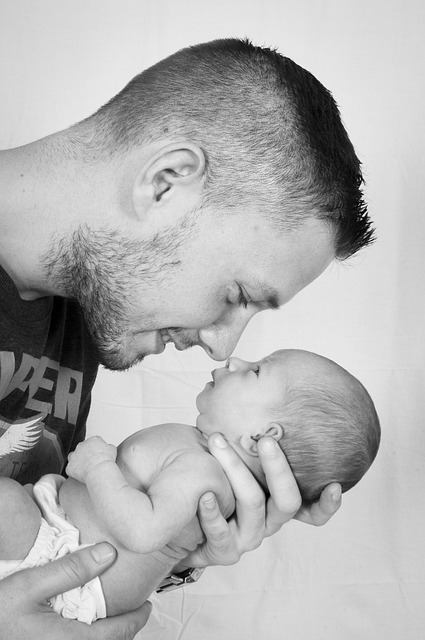Navigating the Adoption Process: Ensuring Representation and Fairness for All
In adoption hearings, qualified attorneys specializing in family law or adoption are crucial for fai…….
Understanding Adoption and Surrogacy
Adoption and surrogacy are integral components of the human reproductive landscape, offering pathways for individuals and couples who wish to build families but are unable to do so biologically or through traditional means. Adoption involves the legal process by which a minor is moved from the legal care of one individual or group to another, typically with the goal of forming a permanent family bond. Surrogacy, on the other hand, is an arrangement where a woman agrees to carry and deliver a child for Intended Parents who are unable to conceive or carry a pregnancy themselves. This article delves into the complexities, significance, and impacts of these processes globally.
Global Impact and Trends
The impact of adoption and surrogacy is felt across the world, with international trends reflecting cultural shifts, legal reformations, and advancements in medical technology. The United States, Canada, Western European countries, and parts of Australia and India are prominent centers for both domestic and international surrogacy arrangements. The rise in third-party reproduction has been influenced by factors such as increased acceptance of non-traditional family structures, medical advances in assisted reproductive technologies (ART), and changing legal frameworks.
Economic Considerations
The economic landscape of adoption and surrogacy is multifaceted, encompassing the costs associated with ART, legal fees, and the socio-economic implications for individuals, clinics, and countries involved. In countries like India and the United States, surrogacy has become a significant industry, with surrogates receiving compensation for their services, which can have both positive and negative economic impacts on the communities where these practices take place. The economic value of this industry is substantial, yet it is often shrouded in ethical considerations regarding fair compensation, regulation, and the exploitation of vulnerable populations.
Technological Advancements
Technological advancements have revolutionized the fields of adoption and surrogacy. Innovations such as IVF, genetic screening, and fertility medications have made it possible for more individuals to become parents. In vitro fertilization (IVF) success rates continue to improve, thanks to advancements in embryo selection techniques like preimplantation genetic testing (PGT). The future of these technologies promises even greater strides, with potential breakthroughs in gene editing and artificial wombs that could further shape the landscape of reproductive technology.
Policy and Regulation
The legal framework governing adoption and surrogacy varies widely across countries and states. In some places, commercial surrogacy is legal and regulated, while in others, it is prohibited or heavily restricted. International adoption laws are complex, with each country having its own set of regulations that dictate eligibility for adoptive parents and the rights of birth parents and children. The policies and regulations in place significantly influence the experiences of all parties involved and can impact the accessibility and ethical standards of these processes.
Challenges and Criticisms
Adoption and surrogacy are not without their challenges and criticisms. Ethical concerns arise from issues such as the commodification of human reproduction, potential exploitation of surrogates, and the complexities surrounding the rights and identities of adopted children and surrogate-born children. Critics also point to the lack of uniform standards across jurisdictions, which can lead to inconsistencies in protection and support for all parties involved. Addressing these challenges requires a multifaceted approach that includes better regulation, ethical oversight, and public education.
Case Studies
Several case studies highlight the complexities and successes of adoption and surrogacy. A notable case from India illustrates the transformation of the country into a surrogacy hub, offering insights into both the benefits to surrogates and the challenges of regulation. Another case from the United States showcases the emotional and legal journey of intended parents through the adoption process, underscoring the importance of support networks and advocacy. These stories provide valuable lessons on navigating the system, addressing ethical concerns, and achieving positive outcomes.
Future Prospects
The future of adoption and surrogacy is likely to be shaped by advancements in medical technology, changes in societal attitudes towards family formation, and evolving legal frameworks. The potential for ART to become more accessible and affordable may lead to a broader acceptance and use of these reproductive options. Additionally, the ethical implications of genetic advancements will continue to prompt discussions on the limits of human reproduction and the definition of ‘family.’
Conclusion
Adoption and surrogacy are complex and multifaceted processes that have profound implications for individuals, families, and societies worldwide. They represent a critical intersection of personal choice, medical science, legal regulation, and ethical considerations. As these fields evolve, it is imperative to maintain a focus on the well-being and rights of all parties involved, ensuring that the joy of family expansion does not come at the expense of exploitation or inequality.
FAQ Section
What is the difference between domestic and international adoption?
Domestic adoption involves the placement of a child within the same country, whereas international adoption refers to adopting a child from another country.
Is surrogacy legal everywhere?
No, surrogacy laws vary by country and even by state or province within countries. Some places allow commercial surrogacy with regulations, while others only permit altruistic surrogacy.
What are the risks associated with surrogacy?
Risks include potential legal complications, ethical concerns regarding compensation and treatment of surrogates, and the physical and emotional well-being of the child.
How much does surrogacy typically cost?
The cost can vary widely depending on the country, clinic, and services included. It can range from tens of thousands to over a hundred thousand dollars in countries like the United States and India.
What is the role of fertility clinics in the surrogacy process?
Fertility clinics provide medical procedures such as IVF, monitor the health and progress of the surrogate and embryos, and offer support throughout the process.
Can intended parents choose certain traits for their child through surrogacy?
Yes, through methods like IVF and PGT, intended parents may select embryos based on certain traits, such as gender or genetic predispositions, within legal and ethical boundaries.
What support is available for adoptive families?
Support can come in various forms, including counseling, support groups, financial assistance, and advocacy organizations dedicated to the well-being of adoptive families and adoptees.
This comprehensive overview underscores the importance of a nuanced understanding of adoption and surrogacy, their impacts, and the ongoing debates surrounding these practices. As society continues to evolve, so too will the landscapes of adoption and surrogacy, with the potential for both positive change and new ethical challenges to arise.

In adoption hearings, qualified attorneys specializing in family law or adoption are crucial for fai…….

Surrogacy offers a complex yet promising alternative to traditional adoption, where a woman carries…….

Adoption finalization, while emotionally rewarding, involves complex legalities and requirements. Re…….

Adoption regulations, vital for protecting children and families, govern eligibility, matching, and…….

Surrogacy and adoption are highly regulated processes governed by jurisdiction-specific laws, aiming…….

Complex adoptions, like international surrogacy, demand specialized legal services due to their intr…….

Adoption regulations, especially surrogacy contracts, are essential legal frameworks protecting all…….

Surrogacy agreements are detailed legal contracts that outline rights and responsibilities for all p…….

Surrogacy involves complex legalities centered around the surrogacy contract, which establishes righ…….

Stepchild adoption requires a strategic approach, combining legal expertise with emotional support……..